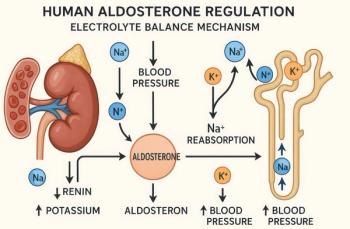
Medical News You May Have Missed - Week of February 4th
FDA approves 3 drugs for type 2 diabetes; African Americans undertreated for hypertension; poor participation in clincall trials; impact of restricted marketing on medical students; PCPs and radiology reporting.
FDA Triple Play Against Type 2 Diabetes
January was a banner month for type 2 diabetes (T2DM) drugs, with the FDA approving the new dipeptidyl peptidase-4 (DPP-4) inhibitor alogliptin as monotherapy (Nesima) and, simultaneously, in combination with metformin (Kazano) and pioglitzone (Oseni). DPP-4 inhibitors block the degradation of active incretin hormones (GLP-1 and GIP), stimulating the release of insulin in a glucose-dependent manner and decreasing levels of circulating glucagon.
• Alogliptin was approved based on the results of 14 clinical trials that included about 8,500 people with T2DM. The drug improved HbA1C by a range of 0.4% to 0.6% compared with placebo.
• The alogliptin and metformin combination was approved based on data from 4 trials that included more than 2,500 patients with T2DM. It improved HbA1C by 1.1% compared with alogliptin alone and by 0.5% compared with metformin alone.
• Alogliptin and pioglitazone in fixed-dose combination was approved based on data from 4 clinical trials including more than 1,500 patients with T2DM. Combining alogliptin with pioglitazone reduced HbA1c by 0.4% to 0.6% compared with pioglitazone alone and by 0.4% to 0.9% compared with alogliptin alone.
Alogliptin is the fourth DPP-4 inhibitor to win FDA approval, joining sitagliptin (Januvia), saxagliptin (Onglyza), and linagliptin (Tradjenta). As condition of the approval, manufacturer Takeda will be required to conduct 5 postmarketing studies of alogliptin, including one focusing on cardiovascular events as well as "an enhanced pharmacovigilance program" targeting liver abnormalities, pancreatitis, and hypersensitivity reactions.
Read the FDA news release on approval of these 3 antidiabetes agents,
Click here for the next article.
Majority of African Americans with Uncontrolled Hypertension Not Receiving Diuretics
A new study published in the American Journal of Hypertension indicated that a majority of African American patients with uncontrolled hypertension are not being prescribed diuretics.
Data from in-home interviews indicated that of 658 participants with uncontrolled hypertension 5.5% were not prescribed any hypertension medications and only 46% were prescribed a diuretic. Fewer than half who were prescribed 1 or 2 drugs were prescribed a diuretic, an indication that these agents are not being chosen as first- or second-line treatment, as recommended by the JNC-VII guidelines. The study also found that even when a diuretic was prescribed, the regimen in many cases was inadequate.
Given the success of these agents, particularly in the population studied, their low cost, and the wide dissemination of hypertension treatment guidelines, the results call for continued efforts to build professional and patient awareness.
The full study results are available
Click here for the next article.
Study Finds Participation in Clinical Trials Low
Researchers at the University of Michigan recently published study results in Clinical and Translational Science that indicated that only 11% of adults and 5% of children in a nationally representative survey had ever participated in medical research.
Data indicated that approximately 64% of adults were aware of opportunities to participate in medical research, but only 12% of parents were aware of opportunities for their children. Participation in and awareness of research among adults were associated with higher income and education, older age, presence of chronic conditions, and proximity to specific research sites.
The research sites of note are centers identified by the NIH that receive multimillion-dollar grants as part of the Clinical and Translational Science Awards (CTSA) program. The goal is to speed scientific discoveries into treatments.
In a press release, Matthew Davis, MD, MAPP, Associate Professor of Pediatrics and Internal Medicine at the University of Michigan Medical School, said, "Researchers and institutions need to spread the word more effectively" about opportunities for inclusion in important clinical research. It would seem that the CTSA sites are successful at attracting interest and participation and that their tactics merit investigation.
You can read the study abstract
Click here for the next article.
Medical School Gift Restriction Policy Affects Prescribing
The gift restriction policy of your medical school may have affected your subsequent prescribing behavior, according to the results of a study published in BMJ.
The study found that those physicians studied who went to a medical school with an active restriction against gifts or other forms of pre-professional pharmaceutical marketing were less likely to prescribe 2 out of 3 newly introduced psychotropic medications vs. existing alternative medications.
Researchers looked at the 14 US medical schools that had restriction policies in place by 2004. Prescribing patterns in 2008 and 2009 of physicians attending each school were compared with physicians graduating from the same schools before the policy was implemented, as well as a set of contemporary matched controls. According to the study, none of the newly marketed psychotropic medications “represented radical breakthroughs in their respective classes.”
Read about the results of the study
Click here for the next article.
PCPs Polled on Satisfaction with Radiology Reporting
Results of a recent study found that the overwhelming majority of primary care physicians surveyed preferred to deliver results of radiology examinations themselves, and also felt medico-legally obligated by recommendations within radiology reports.
“There is considerable interest in improving reporting practices. However, it is wise to obtain an understanding of the needs and opinions of referring physicians, particularly primary care physicians, regarding these measures so that their feedback and ideas can be incorporated into any change in practice,” Andrew J. Gunn, MD, author of the study published in the Journal of the American College of Radiology, said in a press release.
These conclusions were drawn from an online survey that was distributed to 229 primary care physicians; 100 responses were received. Ninety-five percent of respondents indicated that the ordering physician should deliver the results of the examinations, and no respondents thought that radiologists should deliver results. The findings are of particular interest as patients have increasingly wide access to test results of all kinds through Web sites and online portals.
Read the abstract of the study
Click here to return to the first article.
Newsletter
Enhance your clinical practice with the Patient Care newsletter, offering the latest evidence-based guidelines, diagnostic insights, and treatment strategies for primary care physicians.

































































































































